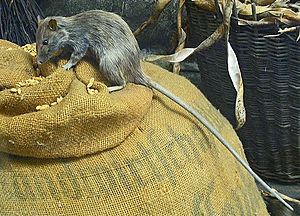Host (biology) facts for kids
In biology, a host is an organism that provides a home and food for another organism. This other organism, called a parasite, lives on or inside the host. Parasites depend on their hosts to survive.
Contents
What is a Host?
A host is like a living shelter for another creature. This other creature, often a parasite, gets its food and protection from the host. Think of it like a tiny guest living in a big house, but the guest takes things without giving anything back.
Types of Host Relationships
Hosts are involved in different kinds of relationships with other organisms. These relationships are part of how living things interact in nature.
Parasitism
In parasitism, one organism (the parasite) lives on or inside another organism (the host). The parasite benefits, but the host is usually harmed. The parasite gets its food and shelter from the host.
- Examples of parasites:
- Fleas and ticks are parasites that live on animals like dogs and cats. They feed on the animal's blood.
- Some worms, like tapeworms, can live inside the intestines of animals and humans.
- Certain fungi can grow on plants, causing diseases.
Mutualism
Sometimes, both organisms in a relationship benefit. This is called mutualism. Even though one organism might live on or inside the other, both get something good from the interaction.
- Examples of mutualism:
- Mycorrhizal fungi live on plant roots. The fungus helps the plant absorb water and nutrients, and the plant gives the fungus sugars it makes.
- Cleaning symbiosis is when smaller fish or shrimp clean parasites off bigger fish. Both the cleaner and the cleaned fish benefit.
Commensalism
In commensalism, one organism benefits, but the other is neither helped nor harmed. It's a bit like a free ride or a free meal without causing any trouble.
- Examples of commensalism:
- Remora fish often attach themselves to sharks or other large marine animals. They eat leftover food scraps from the shark's meals and get a free ride, but they don't harm the shark.
- Barnacles attaching to whales. The barnacles get a place to live and filter food as the whale swims, while the whale is usually unaffected.
Why are Hosts Important?
Hosts are very important in ecosystems. They play a key role in the life cycles of many other organisms, especially parasites. Understanding hosts helps scientists study diseases and how they spread. For example, the Roof rat can be a host for the bacteria that cause bubonic plague, a serious disease.
Images for kids
-
A Buff ermine moth caterpillar, which is a micropredator (a tiny predator)
-
Mycorrhiza, a helpful partnership between a plant's roots and a fungus
-
Cleaning symbiosis: A Hawaiian cleaner wrasse cleaning a yellowtail wrasse
-
A Nurse shark with commensal remoras, which get a free ride and might also clean the shark
See also
 In Spanish: Huésped (biología) para niños
In Spanish: Huésped (biología) para niños
 | Frances Mary Albrier |
 | Whitney Young |
 | Muhammad Ali |






